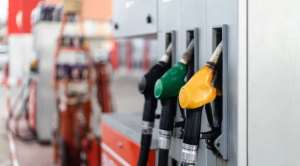
The Ghana Revenue Authority (GRA) has pushed back the implementation of the Energy Sector Shortfall and Debt Repayment Levy, following pushback from oil marketing companies who criticized the timing and potential impact of the move.
Initially set to take effect on Monday, June 9, the levy—an additional GHC1 per litre—sparked concerns from the Chamber of Oil Marketing Companies (COMAC), which warned that the new charge could increase fuel prices and add to the financial pressure on consumers.
Speaking to Citi News, the GRA said the decision to delay the rollout came after discussions with stakeholders. “The Association has concerns with the 9 June implementation date. We have discussed with their leadership in the spirit of cordiality and partnership and have agreed a new start date of 16 June,” the Authority explained.
Though the levy is aimed at addressing growing debts in the energy sector, players in the downstream petroleum industry argue that they were not adequately engaged ahead of the policy’s announcement. They fear the move could introduce further instability to a market already grappling with pricing volatility.
According to the updated directive, the new levy rates are as follows:
Motor Spirit (Super Petrol): increasing from GHC0.95 to GHC1.95
AGO/Diesel and Marine Gas Oil (Foreign): GHC0.93 to GHC1.93
Marine Gas Oil (Local): GHC0.03 to GHC0.23
Heavy Fuel Oil (Residual Fuel Oil – RFO): GHC0.04 to GHC0.24
Partially Refined Oil (Naphtha): GHC0.95 to GHC1.95
Liquefied Petroleum Gas (LPG) remains unchanged at GHC0.73
These new rates will apply to all petroleum products not lifted before the revised implementation date of June 16, 2025.
To manage the transition, the GRA has outlined the following measures: petroleum products lifted by a Petroleum Product Marketing Company (PPMC) before June 16 will remain under the old rates, while any “cash-and-carry” transactions where products are lifted on or after June 1 will attract the updated levy.
The directive, signed by GRA Commissioner-General Anthony Kwasi Sarpong, instructs all ports and fuel stations to enforce the new policy without exception.


